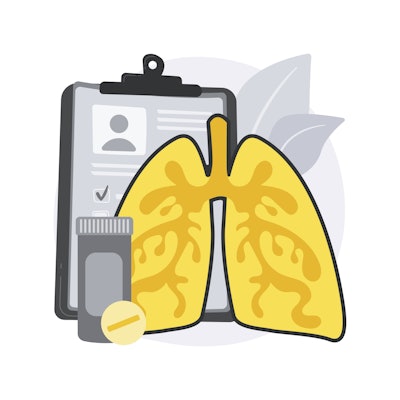
EpiEndo Pharmaceuticals, a clinical-stage biopharmaceutical company developing a new class of oral, barrier-enhancing, anti-inflammatory therapeutics addressing chronic airway diseases, has successfully completed its phase 2A clinical trial for EP395 in patients with COPD.
EP395 is part of EpiEndo’s family of orally available, non-antibiotic macrolides called Barriolides, which can reduce inflammation while also limiting the antimicrobial resistance threat. This treatment approach focuses on the role of epithelial function in chronic inflammatory disorders.
EpiEndo’s phase 2A study investigated the safety and tolerability of EP395 administered once daily as oral capsules to COPD patients for 12 weeks. In addition, it assessed the effect of EP395 on a number of biomarkers. Sixty-one adults diagnosed with COPD were enrolled in the study across six clinics in the U.K. and Germany.
The study results show EP395 to have tolerability and safety as well as beneficial effects on inflammatory biomarkers, as seen with antibiotic macrolides. However, in contrast to antibiotic macrolides, GI adverse events were comparable between the EP395- and placebo-treated participants, and no adverse events related to hearing were reported.
EpiEndo Chief Medical Officer Ginny Norris, MD, said the results point to a promising future for the treatment.
“The results from this study, together with those from our recently completed LPS challenge study, provide a good dataset on which to progress the clinical development of EP395,” she said.






















